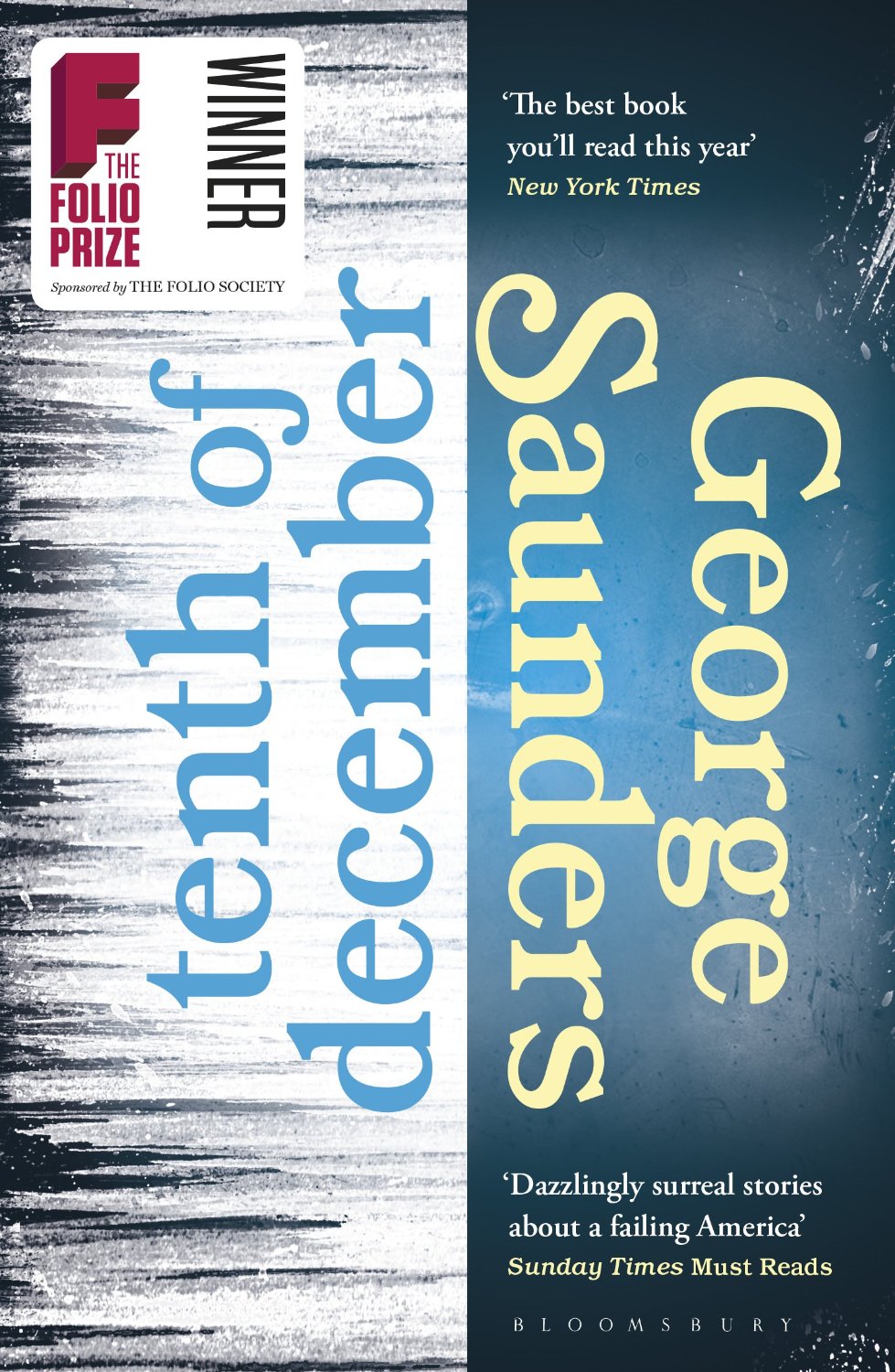
photo © Rama V, 2009
by Jose Varghese
The stories of George Saunders never fail to create unique characters and life situations. But they can have devastating effects on readers. I have come across quite a few such readers who react vehemently to the Saunders worldview. They wonder why he bends the moral situation so far that it almost breaks. But some, like me, may beg to differ. We think the very act of constant counter-cultural philosophising is what makes his stories pertinent, and capable of disturbing safe, established views.
‘Escape from Spiderhead’ is a story that fights for a space between science- and speculative-fiction. While science and dubious experiments are at the centre of the story, what really bothers us here is how human beings, even when they are reduced to lab rats, are capable of retaining free will. One may be reminded of all the previous works of literature and art that run on similar lines – A Clockwork Orange by Anthony Burgess, The Loneliness of a Long Distance Runner from Alan Sillitoe, the Andrei Tarkovsky movie Solaris, Margaret Atwood’s Oryx and Crake, and so on. However, Saunders’ story doesn’t sound like a copy of any of them, despite the fact that the moral dilemma presented in it is a shared feature in all, in various doses.
 Jeff is the central character in the story. He is revealed to be a wasted entity, the remnant of a young murderer who has gone through endless punishments, corrective measures and mind-altering experiments. He is one amongst a selection of similar criminals who are used for pharmaceutical tests. A set of drug names, the meanings of which are intimated, are presented all through the pages: VerbulaceTM, VeritalkTM, ChatEaseTM, TemperBerst, InstaRaje, LifeRooner, Bliss TymeTM, SpeedErUpTM, DarkenfloxxTM. The drugs, administered by scientist Verlaine, make Jeff and the other experimental scapegoats go through experiences that are monitored by someone named Abnesti.
Jeff is the central character in the story. He is revealed to be a wasted entity, the remnant of a young murderer who has gone through endless punishments, corrective measures and mind-altering experiments. He is one amongst a selection of similar criminals who are used for pharmaceutical tests. A set of drug names, the meanings of which are intimated, are presented all through the pages: VerbulaceTM, VeritalkTM, ChatEaseTM, TemperBerst, InstaRaje, LifeRooner, Bliss TymeTM, SpeedErUpTM, DarkenfloxxTM. The drugs, administered by scientist Verlaine, make Jeff and the other experimental scapegoats go through experiences that are monitored by someone named Abnesti.
The first part shows how the drugs transform the perceptions of Jeff and the others. Under the influence of the drugs, they see more than just the ordinary, in both a garden and someone from the opposite sex. After ‘Hilarious’ is administered through a drip by Abnesti, Jeff sees that the garden ‘looked really nice’ and ‘everything seemed super-clear’. Then, when some VerbulaceTM is added to it, Jeff feels the same things but is capable of saying them more articulately:
The garden still looked nice. It was like the bushes were so tight-seeming and the sun made everything stand out? It was like any moment you expected some Victorians to wander in with their cups of tea. It was as if the garden had become a sort of embodiment of the domestic dreams forever intrinsic to human consciousness. It was as if I could suddenly discern, in this contemporary vignette, the ancient corollary through which Plato and some of his contemporaries might have strolled; to wit, I was sensing the eternal in the ephemeral.
Jeff has sex with two women, Heather and Rachel, three times each, in a ritualistic manner. He is even able to feel love in these acts. But the catch is that, when he is under another drug, everything returns to normal and the objects and human beings don’t excite him in the same way. Even the feeling of love is erased, though the memory of love remains in his mind.
Later on, Jeff realises that there had been a complex web of human interactions in a single day, involving him, the two women, and two other men, Rogan and Keith. They have all had similar experiences with each other and are then called to the task of choosing between their sex partners, choosing one for whom DarkenfloxxTM will be administered. Jeff doesn’t want anyone to go through the  emotionally damaging experience of DarkenfloxxTM. Given the choice, he says, he would like them to choose between Heather and Rachel at random. Abnesti is elated to know that all the participants react in the same way, proving his hypothesis that love can be initiated and then erased fully, with no residual feelings left in the human mind from the drugs. No one gets Darkenfloxxed.
emotionally damaging experience of DarkenfloxxTM. Given the choice, he says, he would like them to choose between Heather and Rachel at random. Abnesti is elated to know that all the participants react in the same way, proving his hypothesis that love can be initiated and then erased fully, with no residual feelings left in the human mind from the drugs. No one gets Darkenfloxxed.
In the final part, Jeff is called once again for further confirmation of the findings. He is now forced to witness Heather being administered DarkenfloxxTM. He has no choice but to watch her go through immense emotional turmoil immediately after the drug is administered. In self-destructive despair, Heather disassembles the impossible-to-disassemble chair in her room and using one of its legs she keeps harming herself, eventually killing herself. Jeff is administered drugs that stimulate his ‘language centers’ and these force him to describe what he sees: “I used my words. I spoke volumes, was precise.” Though Heather’s death upsets Abnesti, he is glad about drug-induced Jeff’s reactions.
This is the most moving part, almost an epiphany, in the story. In the first part of the story, Saunders handles with real mastery the differences between the language Jeff uses to narrate the story and the unseen possibilities of language he hints at while referring to what happens when Abnesti ‘peps up those language centres’. This, and the sexual experiences that Jeff and the others have, are used to build up the tension when Abnesti explains the rationale of his mad experiments. The description of Heather’s suffering is apt, leaving a reader devastated, as it makes you think deeply of the reality that lies beneath the ‘talk’ through which we human beings try to express/hide grief.
Jeff is called, once again, this time to witness Rachel being administered DarkenfloxxTM. He refuses to undergo the experience, and Abnesti and Verlaine try to find a clause that allows them to administer a drug on Jeff without his consent. During this time, Jeff grabs an opportunity to escape from all this manipulation. Deciding that he cannot allow another human being to be killed, for whatever lofty concepts, he self-administers DarkenfloxxTM. His death is described in a chilling manner.
Then came the horror: worse than I’d ever imagined. Soon my arm was about a mile down the heat vent. Then I was staggering around the Spiderhead, looking for something, anything. In the end, here’s how bad it got: I used a corner of the desk.
His death liberates him from the thought processes and linguistic restrictions inflicted upon him by other forces. He thinks deeply on how much the so-called criminals like him were in control over their real lives, since they were born. At birth, they’d been charged by God with the responsibility of growing into total fuck-ups. Had they chosen this? Was it their fault, as they tumbled out of the womb? Had they aspired, covered in placental blood, to grow into harmers, dark forces, life-enders?
Here, Saunders draws a striking parallel between the way the minds of the criminals are manipulated by the scientists and how their real minds, prior to this, from the moment they were born, were manipulated by unseen forces – be it what they call God, life circumstances, or simply the way their mind is formed.
Jeff doesn’t want to come back to life, at any cost. He just regrets the fact he was never able to explain anything to his mother. He chooses to join a group of birds and fly upwards – an image of a death and what could happen afterwards that may please a lot of readers and disappoint some others.
Why does Saunders do this? Why does he have to disturb us so much? And why do some of us feel good after allowing ourselves to be so disturbed? His characters are allowed the freedom to escape from the traps that many of us, including Saunders, are not allowed to escape. Jeff says in the end, “…for the first time in years, and forevermore, I had not killed, and never would”. It’s not all about killing. It’s about not doing what we wouldn’t, if we were fully ourselves, at any time.
~
 Jose Varghese is a writer/editor from India who teaches English at Jazan University, KSA. He is the founder and chief editor of Lakeview International Journal of Literature and Arts. His poems and short stories have appeared in the journals/anthologies: The Salt Anthology of New Writing 2013 (UK), Unthology (UK), The River Muse (USA), Chandrabhaga (India), Kavya Bharati (India), Postcolonial Text (Canada) and Dusun (Malaysia). He was the winner of The River Muse 2013 Spring Poetry Contest, USA, a runner up in the Salt Flash Fiction Prize 2013, UK, a second prize winner in the Wordweavers Flash Fiction Prize 2012 and his poem was commended in Gregory O’Donoghue International Poetry Prize 2014. His first book was Silver Painted Gandhi and Other Poems and his collection of short stories, Silent Woman and Other Stories, is slated for publication in 2015. He has done research on Post-Colonial Fiction and is currently working on Hanif Kureishi’s novels. He was a participating writer at Hyderabad Literary Festival 2012 and at the 2014 Vienna International Conference on the Short Story in English.
Jose Varghese is a writer/editor from India who teaches English at Jazan University, KSA. He is the founder and chief editor of Lakeview International Journal of Literature and Arts. His poems and short stories have appeared in the journals/anthologies: The Salt Anthology of New Writing 2013 (UK), Unthology (UK), The River Muse (USA), Chandrabhaga (India), Kavya Bharati (India), Postcolonial Text (Canada) and Dusun (Malaysia). He was the winner of The River Muse 2013 Spring Poetry Contest, USA, a runner up in the Salt Flash Fiction Prize 2013, UK, a second prize winner in the Wordweavers Flash Fiction Prize 2012 and his poem was commended in Gregory O’Donoghue International Poetry Prize 2014. His first book was Silver Painted Gandhi and Other Poems and his collection of short stories, Silent Woman and Other Stories, is slated for publication in 2015. He has done research on Post-Colonial Fiction and is currently working on Hanif Kureishi’s novels. He was a participating writer at Hyderabad Literary Festival 2012 and at the 2014 Vienna International Conference on the Short Story in English.

